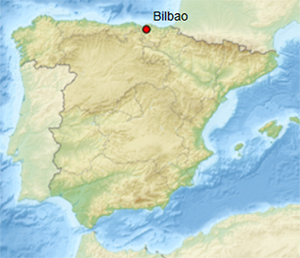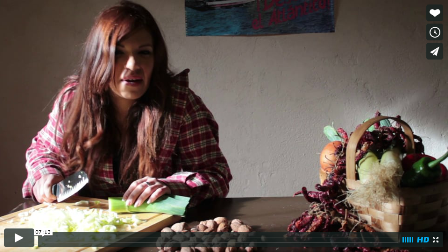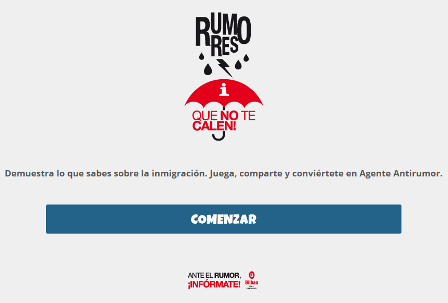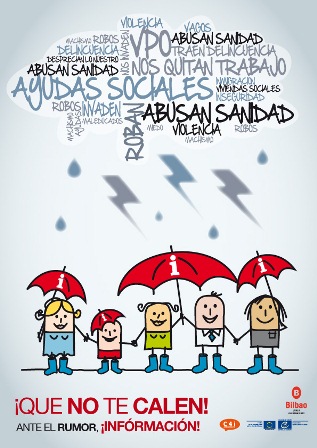Last Wednesday, the 16th of April, within the framework of the project Communication for
integration – C4i, the Area of Equality, Cooperation and Citizenship of the Bilbao Council
welcomed the following two guests from the European Commission: Gemma Pyniol, the
Project Director, and Kseniya Khovanova-Rubicondo, expert in project evaluation. The purpose
of the visit was to analyse the comprehensive anti-rumour strategy that the Area will develop
within the framework of the C4i project in 2014-2015, promoted by the Council of Europe and
with funding from the European Commission.
This strategy consists of interventions in Rekalde and Deusto based on the identification of
existing rumours regarding immigrant populations and the preparation of meaningful
arguments to effectively combat them. While in Rekalde, work along the lines of the antirumour
strategy initiated in 2013 will continue, enhancing youth initiatives by organising antirumour
agent training sessions aimed at sports teaching staff; in Deusto, using the "snowball"
methodology, the best "informative agents" and "multiplier agents" will be sought out and
encouraged to join the project.
As well as training and awareness-raising sessions aimed at local residents and youth, the
project also considers mass media, Municipal youth centres and civil service staff at Public
Institutions as key groups for intervention.
The visit concluded with a presentation by the Social Entity Gazteleku of their experience in
Rekalde, during which a video was projected of anti-rumour dynamics with local youth that
deal with existing rumours regarding foreign immigrant populations in 2013 within the
framework of the Be Inclusive project.








 Bilbao, with more than 350,000 inhabitants, is the capital of Bizkaia and the economic, social and cultural center of the Basque Country. The deep crisis experienced in the 80s struck the pillars on which its economy was based: steel, metallurgy and shipbuilding. After that, the city had to reinvent itself to overcome the decline of an obsolete industrial system, high unemployment, environmental and urban degradation, the processes of migration and the emergence of social exclusion problems.
Bilbao, with more than 350,000 inhabitants, is the capital of Bizkaia and the economic, social and cultural center of the Basque Country. The deep crisis experienced in the 80s struck the pillars on which its economy was based: steel, metallurgy and shipbuilding. After that, the city had to reinvent itself to overcome the decline of an obsolete industrial system, high unemployment, environmental and urban degradation, the processes of migration and the emergence of social exclusion problems. To be able to work with the affective component of prejudiced attitudes towards immigration and foreigners, our proposal is as follows: by stimulating reflection and debate and communicating information via peer networks and opinion leaders (people who have credibility for the general population), we hope to curb rumours and stereotypes and undermine the cognitive foundations of prejudiced attitudes, offering information that generates cognitive dissonance and alters its affective component, bringing it closer to the reality of the data and taking it further away from its association with false negative stereotypes of immigration and foreigners. Our idea is to build an accumulative "snowball".
To be able to work with the affective component of prejudiced attitudes towards immigration and foreigners, our proposal is as follows: by stimulating reflection and debate and communicating information via peer networks and opinion leaders (people who have credibility for the general population), we hope to curb rumours and stereotypes and undermine the cognitive foundations of prejudiced attitudes, offering information that generates cognitive dissonance and alters its affective component, bringing it closer to the reality of the data and taking it further away from its association with false negative stereotypes of immigration and foreigners. Our idea is to build an accumulative "snowball". Comic workshop for youths
Comic workshop for youths
afd2.png?t=1398437013000)



